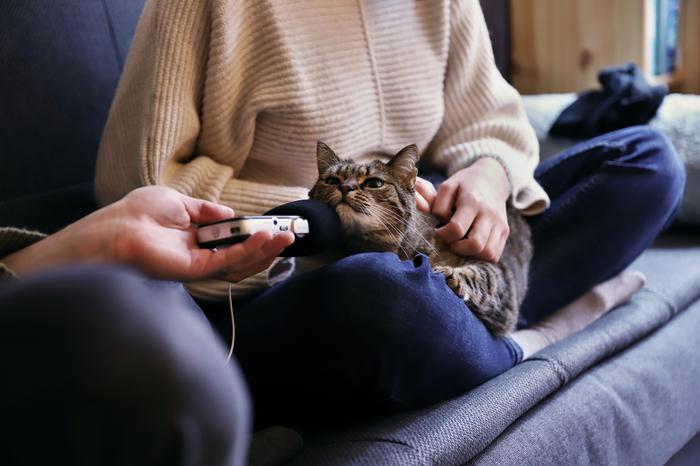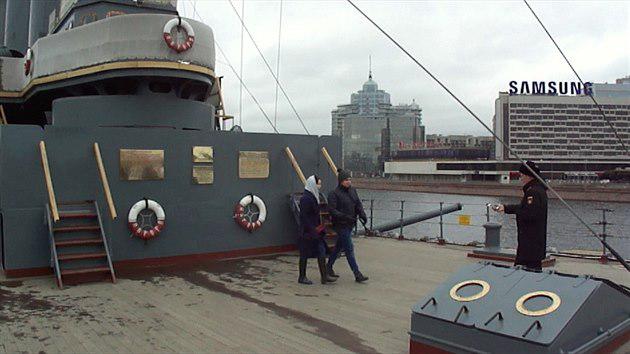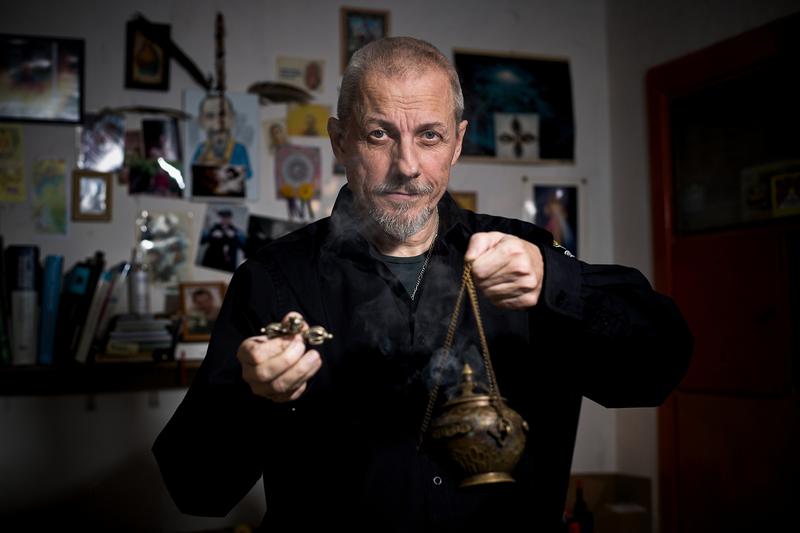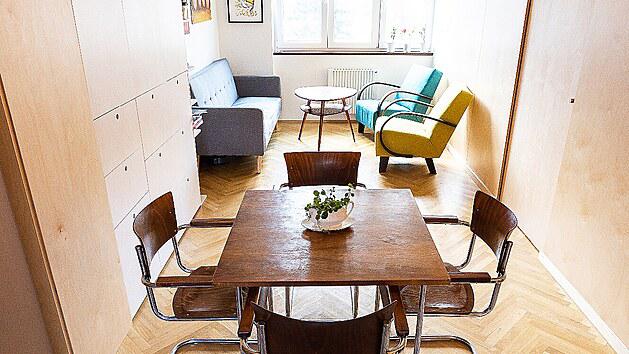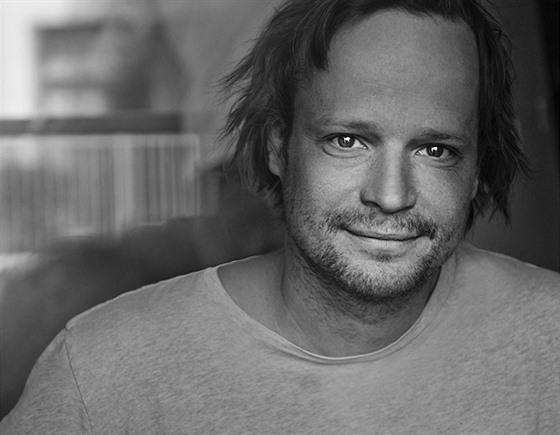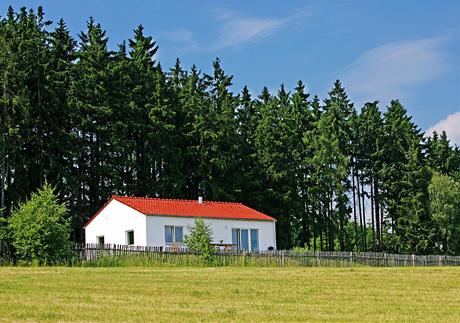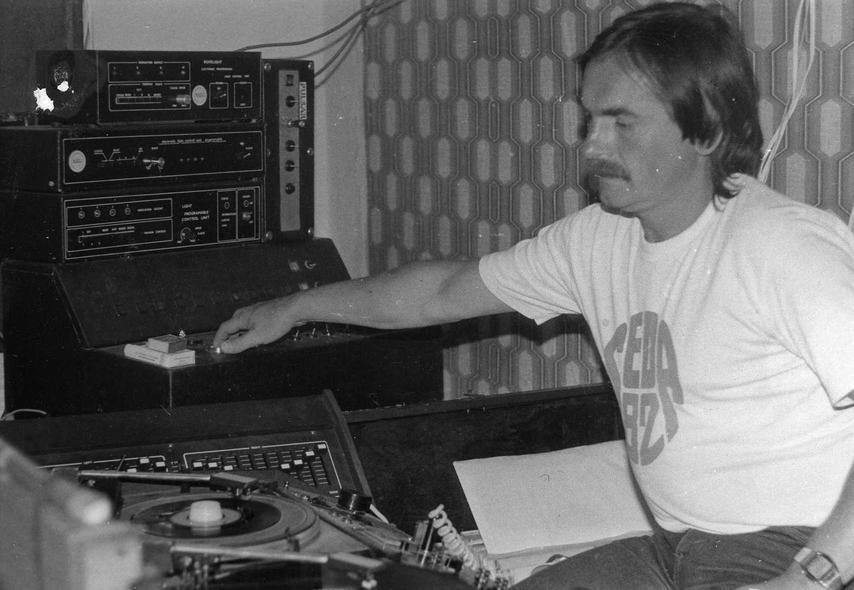
"Stop be afraid of the Germans." About the cross in the forest, stupidity on both sides, and a lightning of frustration - Wednesdays.org
When Petr Kubát describes his many years of friendship with Sudeten German Erika Rahnsch, whose native cottage has been living for a long time and where he also welcomed her for the first time, it sounds too idyllic for someone.However, he does not make the illusion himself, although he is happy about the excellent Czech-German relations.Last year in the neighboring forest, someone broke and painted the murmur cross in memory of the Germans murdered by the Czechs."So we have repaired it and is there so far," says laconically.
The fact that last week the German President Frank-Walter Steinmeier bowed to the memory of Czech parachutists in the Prague crypt could, of course.In fact, it was a breakthrough gesture, to which the long journey of abrasion of Czech-German historical injustices led.
In addition to politicians, however, "invisible diplomats", people like Petr Kubát, who invited Erika Rahnsch to his cottage in the Kytlice in the Lusatian Mountains years ago without hesitation.to the place after many years to look.
Their intense friendships and contacts lasted 16 years, Mrs. Rahnsch died this year.Thanks to his long -term work in the Bavarian archive, she left a number of filled, originally white places in guying history and demolished prejudices about how "Germans want to take a house".
"I think much more than the fear that someone really wanted some property, we are afraid of our bad conscience," comments Petr Kubát in an interview for Watchdes.org that still complex attitude of many Czechs to German neighbors.
Submit "bericht" to Germany
How is the original German resident of the house in the Czech border area contact with its current owner?How did it happen in you and Erika Rahnsch in 2005?
Erika told me she saw a guest house on the Internet, and stands directly against her birth house.She wanted to go to the guesthouse to open the window in the morning and see her birthplace.And when they were already accommodated there, she had fun with the owner, if the house could be visited.
Erika Rahnschová (left) at the first visit of her birth house in 2005, at that time she didn't come alone, but with her friend and interpreter.Photo: with the consent of Petr Kubát
So he called me and I was glad because it was the time we ended up with the reconstruction of that house and I thought I'd love to find out about history who lived here.I knew there were some Germans, but I had no idea who.However, during the reconstruction one has other worries, you are interested in gutter, I thought "sometimes, once ...".And when the neighbor called me in 2005 that the lady was staying with him, I immediately invited them, they came straight to us and there was such a first, very cordial meeting.
Of course, Erika later told me that it was a little worried if it was worth going in, but it was absolutely cool.She brought us the original photos of our house, from the time around 1900, because we were still lucky that Erika was doing the manager of the archive of displaced Germans in Waldkraiburg and had a lot of materials there.
To explain: Waldkraiburg is the Bavarian, originally displacement city, where Erika Rahnsch ended after the expulsion from Czechoslovakia.
Yes.And the photos were excited, they were beautiful.Suddenly I got an incredible source of history we wanted to be interested in.Moon later we were already in Waldkraiburg and we returned the visit.I have been there several times since then and she came here every year when her health allowed her.The contact was quite intense, I called every month, told my wife that I had to give "bericht" to Germany.Because Erika needed to know what's going on in the village, what's new and I enjoyed it and I was very happy to do it.We have built a very narrow and nice relationship.
Every morning the best of the Watchdes.Org
You have rarely met several things-that in the cottage that the German native knocked, there was just someone who knows German, is interested in history, and is not "clenched" in terms of Czech-German trauma from the past like many other people inSudetenland and moreover in the Czech Republic.What happened in the village when it was distributed that one "of them" came back from the Germans?
I was excited about it and I told the village what great contact we had, and a few people asked me - won't you be afraid he'll want the house back?Then I said Erice, I didn't think about it, and she said, "What would I do with it?"We, so Erika.I found it nice and important for her.So there may have been any concerns in the village, but I didn't really have them.
We do not stuff it to anyone…
And this was the idyllic continued?
Yes, já myslím, že ji tady vzali za svou, i díky její práci v archivu.She was 1929, so when she left, she was seventeen years old and you already remember enough.Thanks to working in the archive, she also had a lot of information and the flower was her lifelong theme.She knew something about every house.So they began to address me if she wouldn't know who lived with them in the house, and several houses in the flower we "rewrite" like this.In Waldkraiburg in the Archive it was possible to find photos of those houses, so we handed them to those people.So people knew that Erika is "the cubates" and if they need something, they can turn to her.
Was she the only one who returned "home" like that?
No, there are more people here and approach it differently.There is another gentleman who lives in Magdeburg and his family left here when he was about five years old.Their house is no longer standing, but they come here regularly because he likes the surroundings and loves it here.Only in our home there were certainly a hundred Germans, because we were such a rarity in Waldkraiburg and we worked here a bit like a museum and we literally went through German expeditions through the house.
Why do you think that you have not encountered the locals because of contacts with the Germans?After all, we are in the countryside, near the border, and 15 years ago when you started it, there could be a distrust much stronger than today.
I find here that - be it a cottage or local - younger years of local history are interested, but the older ones really do not want to reach.The younger ones know that some Germans have been and are interested in the context, they are not burdening the past.
And what is it specifically manifested?
We did such a project "landscape behind the school" with the grammar school in Varnsdorf, when they were looking for old photos of places here in the area, then they took it what the place looks like today, and on the computer they made such farters.We also did an exhibition of photos we had from Erika Rahnsch.There was a rich federal life in Kytlice, there was a smoking club and it has a beautiful photo of gentlemen with pipes.I tried to pull out a few similar curiosities and it met with great success.To tell the truth, we don't get it somehow by force, but when we are interested, we go across from.
You mentioned that Mrs. Rahnsch knocked for your first time when you were completing the repair of this cottage.I have already heard of a few findings of artifacts after the original German inhabitants just during similar reconstructions - whether it was a valuable or even porcelain dishes.Did you find anything?
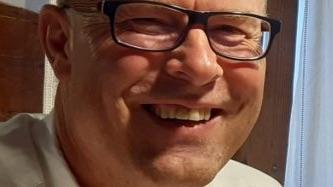
No. Nonašli, i když jsem trochu doufal, že najdeme a hledal jsem úplně všude.The last thing I did here is the original planks I have grinded and gave them back.I promised myself that at least I would find something, I don't mean objects or gold, but perhaps a pencil written from the carpenter who did it to find out about the house.But really found nothing at all.I myself gave the reconstruction under the outdoor enamel table with a paper number with a brief history of the house, photos of our family and Erika and its signature and coins that previously paid.This is such a message for someone who may be “drilling” in it once.
Admit that something was wrong
What do you think today the relationship of Czechs to the Germans - your, perhaps a little idyllic story of reconciliation with the original owner of the house, or rather the fact that in the Czech Republic, for exampleUse to divide the company and obtain votes in the elections?
I think it's a mix of both.The mother of the daughter -in -law of Erika Rahnsch originally from Rumburk also went to see the "house" in the Czech Republic a few years ago - and the door was in front of them.But I would say that it is associated with stupidity on both sides, Czech and German.Erika Rahnsch was just a member of the Sudeten German Landsmansaft and when I went there, I met many people there, and were nice, pleasant, positively tuned.
"A monument to unnecessary victims" in the forest near the pond near Kytlice on the site of the murder of the group of Germans Revolutionary Guard.Last year someone broke the cross and painted with a swastika cross.
- Foto: HlídacíPes.org
- Foto: HlídacíPes.org
- Foto: HlídacíPes.org
- Foto: HlídacíPes.org
- Foto: HlídacíPes.org
But Erika once told me about her friend in Vienna, who had my dad from here, had the forest, or the service house, was not theirs, and they had to leave it during the expulsion.The current owners made a guest house there and put an advertisement in the German newspaper that when the Germans arrive, they can live there.And the lady from Vienna was very angry as it is possible that someone in their house will make a guest house and still put an ad on it.Erika called me and said she didn't understand this reaction of her friend.So I think the stupidity is double -sided.
I think much more than the fear that someone would really want some property, we are afraid of our bad conscience, when we had a fairly big chance of the Czechs after the war, and we did not work a lot.I don't want to revise the results of the war in any way, what the Germans did was just terrible, but when we defend us that we did something wrong after the war, it is a bad way.
The so -called wild expulsion of the Sudeten Germans left the traces in the guy. Nodaleko odtud v lese jste před lety vztyčili pamětní kříž, připomíná vraždu šesti německých mužů příslušníky Revoluční gardy…
A little more the event began to talk about when contact with Erika came.I originally did not know about it, I am not from here, but in the flower it was known that there was something that was not “completely kosher” at the border pond.And I was pleased when the village addressed me if the Germans would have nothing against it if there was a reverent place there.Of course they were happy.
But we wanted to proceed cautiously, so we made a municipal referendum that was close to the pros, but when we submitted it to the council, it decided that "the time" had not yet launched ".This was about 2007 or 2008 and we did it with a group of other enthusiasts on their own.
The monument was fine for a long time, but last year someone was packed with a distinctive hook cross.
We were first afraid that it wouldn't last long, but seven eight years were fine, there were flowers, candles.But then the cross was sprayed with color and broke.So we have repaired it and is there so far.
You worked in Germany and thanks to your contact with Erika Rahnsch you have to the Germans and those of the Sudetenland, exceptionally close. Nomáte někdy dojem, že v Česku politici i část společnosti Německo používají jako něco, kam se dá ukazovat prstem, že „tomu to nejde“ – třeba s uprchlíky nebo s covidem… Prostě trochu takový německý hromosvod naší vlastní české frustrace?
Little duct of frustration, it seems to me quite a bit.I had a visit here now, known from Berlin who have nothing to do with the Sudeten German question.Known is as old as I am, she is fifty -five, a war -unloaded generation.And she said: I tried not to be proud of my nation in my life, even though we did something like the Germans, or when to be proud, so carefully that it would not be taken as some exaggerated nationalism.I just looked at her when she told me, I never thought about it that way.
We are talking about such a theoretical level of the relationship of the Czech nation to the German, but I am so glad that the real mutual contacts are at such a great level today.It is important to meet people.Because suddenly they find that they understand that they are troubled by the same problems and that one or others are not the bloodthirsty beasts that would like to take a house for someone. Novím, jak to říct, prostě se přestanete bát.
Did you like this text? Support us by transfer using QR code
Scan the QR code through your mobile bank application and enter the amount at will.
Děkujeme za podporu!Líbil se vám tento text? Pokud nás podpoříte, bude budoucnost HlídacíPes.org daleko jistější.Přispět 50 KčPřispět 100 KčPřispět 200 KčPřispět 500 KčPřispět 1000 KčPayment on-line provides donation.cz
32 comments
- napsal:3.9.2021 (12:28)
With individual people (some) you can certainly come out.The problem is that they were part of the criminal machinery that had a goal (MJ.) Our Zgenocidation.So with the Landsmanshaft as an organization, followed by clearly to the machine, it is no longer possible to come out clearly.And to the cross: were there a truly innocent or sadistic supervisors from a concentration / prison camp, or something else similar?Whenever something innocent victims begin to find out, it is usually found that by far some 24 carats were not.
- napsal:5.9.2021 (10:14)
Somehow I miss your comment on the article "I will die, let me daughter" to me ".
- napsal:5.9.2021 (18:56)
Among those shot was Ortsgruppenleiter NSDAP and two members of the SS, so probably no innocents.Well, who knows if any of the others had no fingers in the murder of the financial guards of Václav Kozl and Jan Teichman in nearby Horní Podluží near Varnsdorf.Similar murders were committed by members of the Sudetendeutsche Feikorps (Liptáň, Serbská, Krajková, Vejprty, Vidnava, Bublava, Habartov, Pomezní boudy….).Members of the SDP and Freikorps were almost all German men in the borderland in 1938 and were proud of their fight for the Great German Empire.The struggle meant the assaults of customs and gendarmerie stations, murders, beating and torture of financiers, gendarmes, postmen, railroaders and other Czech employees and their families.Especially brutally raged on crystal nights, only in the Sudetenland was burned 35 synagogue.After the war were all suddenly innocent, they nothing, that Hitler and the Nazis.
- napsal:3.9.2021 (13:02)
Great conversation thanks a lot for him
- napsal:3.9.2021 (13:39)
As a proud Czech I have no problem with Sudeten Germans (German -speaking Czechs), I even think of them is a greater percentage of decent and hardworking people than among the Czech Communists and the Bolsheviks.I think their expulsion and removal was a cardinal mistake to which our nation had paid hard.Just visit our borderland (especially some locations) and one is clear.
- napsal:7.9.2021 (17:57)
Given that you do not visit those "some locations" shortly after the expulsion of the Germans, but not only after another 40 years of socialist (Z) proceedings, but also after another 30 years of wild capitalism, so that you are not clear at all.
I personally, since I knew some of the sites well at the time and at the end of socialism, I can assure you that they still looked much better than today.Not optimally (no exhibition halls, ala Slušovice), in the border area was always worse than in Prágl, but the total devastation occurred only during 90.The years when a number of investors were mainly about "fast money.
And politically (after reminding) it was that we had the "best president in the world that the whole world admired", so unfortunately the difficult problems of transformation did not solve, and especially in the borderland, at all..
- napsal:3.9.2021 (16:41)
Which is, however.What is described in the introduction should be typical and usual for today.that it is almost unnecessary to write about it. Yes, a právě v pohraničí spolu lidé z obou stran hranice komunikují ,pendluje se přes čáru, obnovují se staré zpřetrhané svazky, a to že nějací Němci bydlí v českém penzionu, či domě nebo co , je senzace leda pro novinářské nedochůdče:)))Jenomže, co je naprosto špatně, je popsáno v závěru.For God's sake, what "admit something wrong"?The fact that "something wrong" was already known to President Beneš when he announced the criticized decree on the amnesty for the perpetrator of repression towards the Germans, at the end of the war - he knew that they were unlawful deeds and crimes but to the perpetrators and punish those perpetrators (the perpetrators (herself marked by the horror of the war) would be complex and in many cases ethically correct.
The fact that "something wrong" was already known in 1947 when the Lieutenant Pazur was tried, responsible for the scary massacre on the Swedish chances.When I skip for 40 years, when we "did not have" "Western) Germans, so that" something was wrong "recognized as our state Prime Minister Klaus by signing the well -known Czech -German declaration in which we said the" bad "and apologized forNo. To že „bylo něco špatně“ přiznal veřejně i jiný premiér Nočas ve svém projevu v Německu a omluvil se za to – ale i to už je řada let v dnešním informačním věku úplná věčnost.So, perhaps it would like to turn it, and the promoters (political and media) "constant another and still with repeated apologies from the Czech side" to send a few interviews with a psychologist.He certainly explained to them that he just worsened the situation by his own hysterical aggression.
- napsal:4.9.2021 (1:53)
Hundreds and hundreds of years of experience with Germania speak for all
- napsal:4.9.2021 (14:23)
The commemorative place served the local German inhabitants who went there to pay tribute to their loved ones who fell in 2.World War II.The granite iron cross erected in May 1944 at the tower Štěpánka by local Germans, was derived from the pattern of the Iron Cross 1939, ie.carried in the middle of the hook cross - the character of the NSDAP and later the sovereign emblem of the Third Reich.Was erected in memory.However, for visitors to Štěpánek's lookout tower and in tourist guides and books, he was probably deliberately mistakenly presented as the so -called.Maltese Cross - a symbol of victims II.World War II.Source: https: // www.folk.cz/traveled/v-jizerskych-game-is-K-Videni-naccist-term.A190905_123438_CESTOSY_VAG
This is the original meaning of the memorial and not in memory of the Germans murdered by Bohemia after the end of the war.Lying directly shamelessly.There could still be the inscription "Hero soldiers Wermacht died so that the Czechs could live"
- napsal:10.9.2021 (10:38)
If "Ivan" looked at the photographs under the article, I would not have been a completely different cross at the Štěpánek lookout tower ... The post -war "executions" of German prisoners and civilians had no legal basis even in the (renewed) First Republic laws = they were murders on the initiative of armed fighting, mostlyunpunished.Even the above -mentioned Pazur was tried, but after release he received a number of honors from the commies and was even official of the Union of anti -fascist warriors!
- napsal:5.9.2021 (21:08)
The fifth column pokes the corners.The expulsion was correct, the Germans were displaced to become an excuse for breaking a democratic state.I think Germany was supposed to be bombed in May 1945 for half a year and the fifth column so the so -called.The Sudeťáci can believe that in 1948 the Communists won here and contributed the Lion's share that the German fascist totalitarianism and subsequently February 1948 were established after 1938 and subsequently February 1948.I would chase her out of the house and who is pulling here I think he is a lap and I cannot appreciate that.I think the enemies of the Czechoslovakia need to be demolished.Let him make him.
- napsal:6.9.2021 (11:25)
You see the Maltese Cross there?The right Maltese Cross looks like https: // cs.wikipedia.org/wiki/mortar%C3%A9ZSK%C3%BD_K%C5%99%C3%AD%C5%Be_ (character) Well I see the Iron Cross 1939 (only the swastika is battered,Military History “Renewed Don't Drave)

